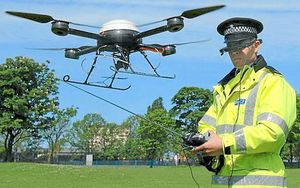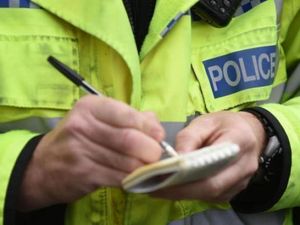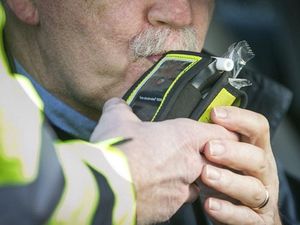Shropshire police must 'keep up' with new technology like drones
Police must "keep up" with new technology such as drones, says Shropshire and Telford's police and crime commissioner.

John Campion also said drones should be used to help "improve service and keep people safe", as officers continue a six-month trial using the technology across the West Mercia policing region.
However similar trials across the country have prompted calls to ensure the rise in technology does not see a reduction in police officers on the streets.
Mr Campion said: “Technology is constantly evolving and our police need to keep up. It’s absolutely right for them to make best use of emerging technologies.
“Drones need to be used safely and responsibly by all users, not just the police, but where they can help improve services and keep people safe, that benefits both our police force and our communities.”
Fears have been raised across the country that a rise in the number of drones used could lead to a reduction in the number of police on the street, as the technology may be able to provide a cheaper option for some duties currently performed by officers.
According to national figures, an average helicopter flight can cost about £1,200, while a drone can be bought for just £1,000.
Mr Barry, National Police Chiefs’ Council lead on drones, admitted that there may soon be an opportunity for chiefs to "rationalise" whether it is cheaper and more efficient to send an officer or a machine.
He said: "There may be an opportunity at some point in the future to rationalise what we need our cops to do because we find drones can do it more effectively and more cost-efficiently, an example of that would be looking for missing people.
"That opportunity has not yet manifested. There will be a point where that question gets asked."
Over the past month, drones have been used across Shropshire and Telford, with the current trial, which began in February, expected to last six months.
During the first week, Warwickshire and West Mercia Police were supported by drone technology in missing persons cases and road traffic collisions.
Drones helped gather evidence by taking aerial photographs of three crashes, the search of a missing person, and also helped try and track someone believed to have run off from a suspected stolen vehicle.
One of the incidents saw the drone take evidential photos, which police said may be used to support a future prosecution, following a road traffic collision near Shifnal.
Each drone is controlled by a trained operator who has physical responsibility for the direction and control of the aircraft. A second person, known as an observer is responsible for operating the photographic equipment attached to the device.
Following the trial the results will be evaluated and used to support the decision of whether or not they will be formally adopted by the forces.





